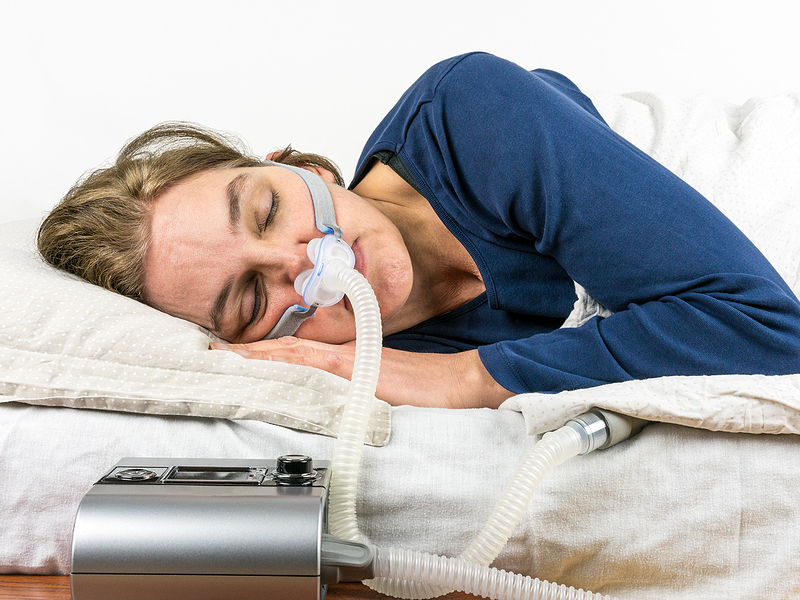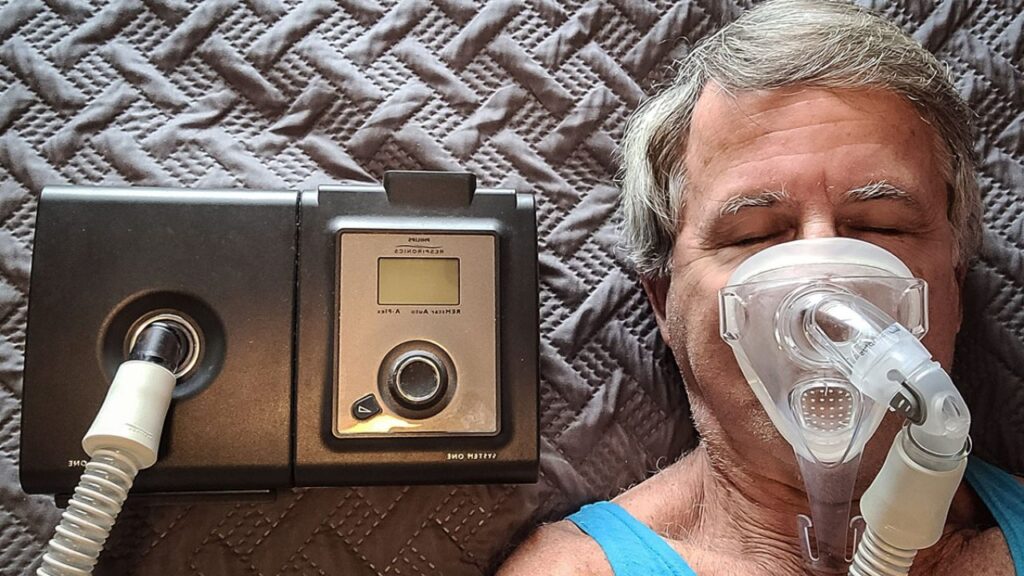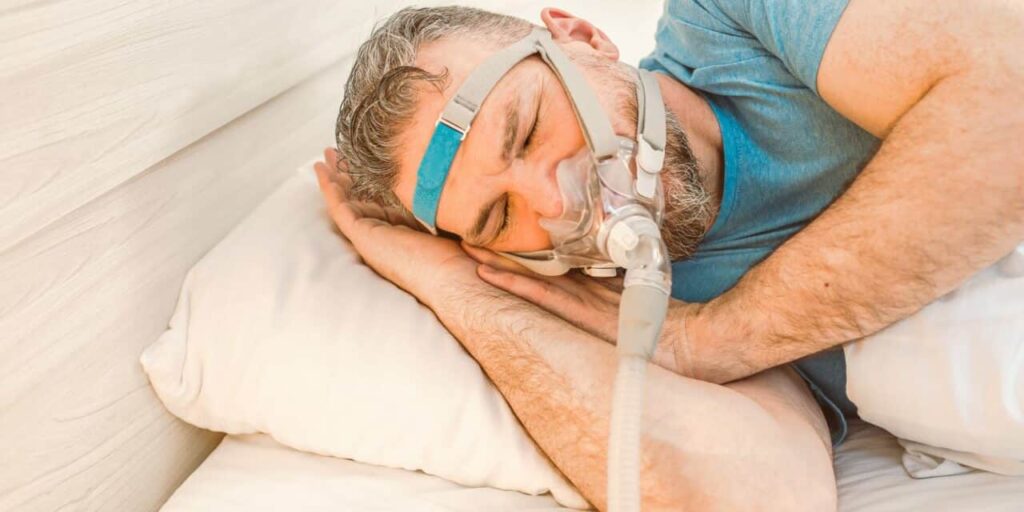Sleep apnea is a sleep disorder that can severely impact your health, leading to daytime fatigue, heart problems, and other serious health conditions. One of the most effective treatments for sleep apnea is the CPAP (Continuous Positive Airway Pressure) machine. It helps keep the airway open during sleep, but it’s not the only option available for people with sleep apnea. In this article, we’ll compare CPAP machines with other sleep apnea treatments to help you make an informed choice about which treatment might be best for you.
Introduction
CPAP machines are commonly prescribed to individuals with sleep apnea, specifically Obstructive Sleep Apnea (OSA), to help maintain continuous airflow and keep the airway open while they sleep. These machines deliver a constant flow of air through a mask to prevent the airway from collapsing, which helps improve sleep quality and reduces the symptoms of sleep apnea. However, while CPAP machines are highly effective, they aren’t the only treatment option available. Other therapies, like BiPAP, APAP, lifestyle changes, and even surgery, can also help people manage their sleep apnea symptoms.
What is Sleep Apnea and How CPAP Machines Help
Sleep apnea is a disorder characterized by repeated breathing interruptions during sleep. These breathing pauses can last from a few seconds to minutes and can occur multiple times during the night. The main types of sleep apnea include:
- Obstructive Sleep Apnea (OSA): This is the most common form of sleep apnea, caused by a blockage of the airway, often due to relaxed muscles in the back of the throat.
- Central Sleep Apnea: This occurs when the brain fails to send the proper signals to the muscles that control breathing.
- Complex Sleep Apnea: A combination of both obstructive and central sleep apnea.
CPAP machines are designed to treat Obstructive Sleep Apnea (OSA). They work by providing a constant stream of air through a mask, which prevents the airway from collapsing and ensures the individual breathes freely during sleep. By reducing breathing interruptions, CPAP machines improve sleep quality, which, in turn, helps reduce the risk of health issues related to sleep apnea, such as heart disease, high blood pressure, and stroke.
See more: How to Find the Best LASIK Surgery Provider in Sydney
Types of CPAP Machines
There are several types of CPAP machines available, each designed to address specific needs. The most common types are:
- Standard CPAP (Continuous Positive Airway Pressure):
- Delivers a continuous flow of air at a fixed pressure to maintain airway openness.
- Benefits: Simple, reliable, and effective for most people with obstructive sleep apnea.
- Drawbacks: Fixed pressure may not accommodate fluctuations in breathing during sleep.
- Auto-CPAP (Auto Adjusting CPAP):
- Adjusts the air pressure based on real-time feedback of your breathing patterns.
- Benefits: Offers a more comfortable and customized treatment by varying the pressure to suit your needs.
- Drawbacks: More expensive than standard CPAP machines.
- BiPAP (Bilevel Positive Airway Pressure):
- Provides two different pressure levels: a higher one for inhalation and a lower one for exhalation.
- Benefits: Ideal for individuals with complex sleep apnea or those who struggle to exhale against continuous pressure.
- Drawbacks: More costly and complex to use than standard CPAP devices.
How to Choose the Right CPAP Machine
Selecting the right CPAP machine depends on several factors, including your specific needs, comfort, and budget. Here are some important factors to consider:
- Comfort: Choose a CPAP machine with adjustable settings, such as ramp features (gradually increasing pressure), and one that offers different mask types for a secure fit.
- Noise Level: If you’re sensitive to noise, opt for a quieter machine. Many newer CPAP machines have been designed to operate with minimal noise, ensuring a peaceful night’s sleep.
- Portability: For those who travel frequently, a compact and lightweight CPAP machine that is easy to pack and transport is essential.
- Price: Standard CPAP machines are generally more affordable, while Auto-CPAP and BiPAP machines come with higher price tags due to their advanced features.
Consulting with your healthcare provider is important to ensure you select the best CPAP machine for your specific condition.

CPAP Machine Setup and Usage
Setting up your CPAP machine correctly is crucial for optimal treatment. Here’s how to set up your CPAP machine:
- Unbox and Assemble: Connect the machine to the power supply and attach the tubing to both the machine and the mask. If the CPAP includes a humidifier, connect that as well.
- Adjust the Settings: For standard CPAP machines, your doctor will have set the correct pressure. For Auto-CPAP machines, the device will adjust the pressure based on your breathing patterns.
- Fit the Mask: Ensure the mask fits snugly without causing discomfort. There are different types of masks to choose from, such as nasal masks, full-face masks, and nasal pillows.
- Start Using the Machine: Turn the machine on before you go to bed and let it run throughout the night.
Troubleshooting Tips:
- Air Leaks: If air leaks occur, check the mask for a proper fit and adjust the straps as necessary.
- Dry Mouth: Use a heated humidifier or try a full-face mask to prevent dryness.
- Noisy Machine: Place the machine on a stable surface, and clean the filters to reduce noise.
CPAP Machine Accessories and Maintenance
Proper maintenance and regular cleaning are essential to keep your CPAP machine working effectively. Key accessories and maintenance tasks include:
- Masks: Clean your mask daily with warm, soapy water to prevent bacteria buildup. Replace your mask every 6 to 12 months.
- Tubing: Clean the tubing weekly to avoid mold and bacteria buildup. Replace it every 6 to 12 months.
- Filters: Replace the air filters regularly, typically every month, to ensure clean air delivery.
- Humidifiers: If your CPAP machine has a humidifier, clean it weekly to prevent bacteria and mold growth.
Benefits of Using a CPAP Machine
The benefits of using a CPAP machine extend beyond simply improving sleep. Some of the key benefits include:
- Improved Sleep Quality: CPAP machines help eliminate breathing disruptions, allowing users to experience deeper and more restful sleep.
- Reduced Risk of Heart Disease: Sleep apnea is associated with an increased risk of heart disease, stroke, and high blood pressure. CPAP therapy helps reduce these risks by ensuring optimal oxygen levels during sleep.
- Better Daytime Energy: With improved sleep quality, CPAP users often experience more energy, better focus, and improved mood.
- Reduced Snoring: CPAP therapy can significantly reduce or eliminate snoring, improving the quality of sleep for both the user and their partner.
Common CPAP Machine Problems and How to Solve Them
While CPAP machines are generally effective, users may face some common issues:
- Air Leaks: Ensure the mask is properly fitted and check for any cracks or damage in the mask or tubing.
- Dry Mouth: Use a heated humidifier or switch to a full-face mask if you breathe through your mouth during sleep.
- Discomfort: Experiment with different mask types to find one that’s most comfortable. Cushion pads and mask liners can also help improve comfort.
Cost of CPAP Machines and Insurance Coverage
The cost of CPAP machines varies based on the type and features:
- Standard CPAP Machines: Typically range from $200 to $800.
- Auto-CPAP Machines: Usually cost between $500 and $1,500.
- BiPAP Machines: Can range from $1,000 or more.
Insurance Coverage: Most insurance plans cover CPAP machines when they are prescribed by a healthcare provider. Be sure to check with your insurance provider to confirm what is covered and what costs you may need to pay out of pocket.
Conclusion
CPAP machines are a highly effective and commonly prescribed treatment for people with sleep apnea. While CPAP therapy is the gold standard for managing obstructive sleep apnea, other treatments like BiPAP, APAP, and lifestyle changes can also provide relief for individuals with different types of sleep apnea. By understanding the different types of CPAP machines and choosing the right one for your needs, you can ensure a more comfortable and effective treatment. Regular maintenance and troubleshooting can keep your CPAP machine functioning properly, offering you the sleep quality and health benefits you deserve. Always consult with your healthcare provider to determine the best sleep apnea treatment for you.


